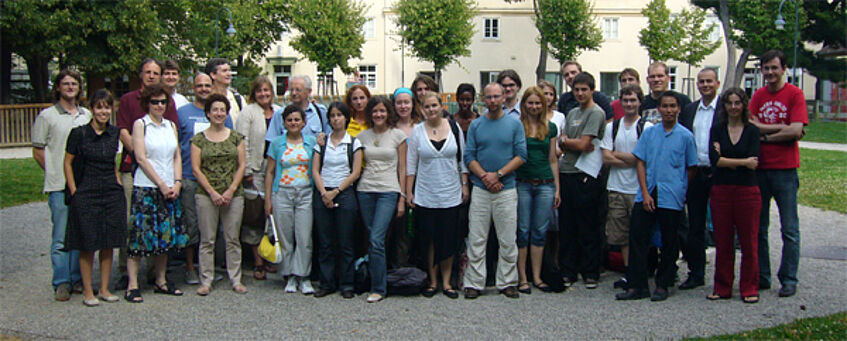USS-SWC 2007 – Consensus in Science
The 7th Vienna Summer University was held on 16–27 July 2007.
Lecturers
- Naomi Oreskes (University of California, San Diego, USA)
- Miriam Solomon (Temple University, Philadelphia, USA)
- Andrzej Wróblewski (Warsaw University, Poland)
Consensus is often assumed to be a goal of scientific research and a marker of truth or knowledge. When scientists agree, their results are taken more seriously than when they disagree. The course critically examined the place of consensus in science, looking at historical case studies (such as The Great Devonian Controversy and successive consensuses on different theories of light from the 18th to 20th century) to see when scientists agree, why they agree, when consensus marks or facilitates scientific progress, and why consensus sometimes disintegrates. Philosophers such as Mill and Feyerabend have persuasively presented the epistemic benefits of dissent; we explored these, through historical and contemporary case studies (such as the expansion of the universe, the case of continental drift, and recent theories of smell). Some questions that we asked were: Are all instances of dissent (e.g. intelligent design versus natural evolutionism, anthropogenic global warming versus natural climate variability) epistemically productive? If not, when is dissent appropriate? And when is consensus appropriate? "Consensus conferences" in applied fields such as medicine and environmental science have been instituted over the past 25 years, and are intended to facilitate consensus on controversial scientific matters of practical importance. Sometimes consensus panels consist of experts in the field, sometimes of scientifically trained individuals in closely related fields, and sometimes lay persons. We attempted to disentangle the complex political and epistemic issues in these social epistemic institutions, selecting our examples from both Europe and the USA.
Topics
- Consensus
- Dissent
- John Stuart Mill
- Paul Feyerabend
- Consensus conferences
- Case studies:
- The Great Devonian Controversy
- Theories of light
- Expansion of the universe
- The case of continental drift
- Recent theories of smell
- Intelligent design versus natural evolutionism
- Anthropogenic global warming versus natural climate variability
